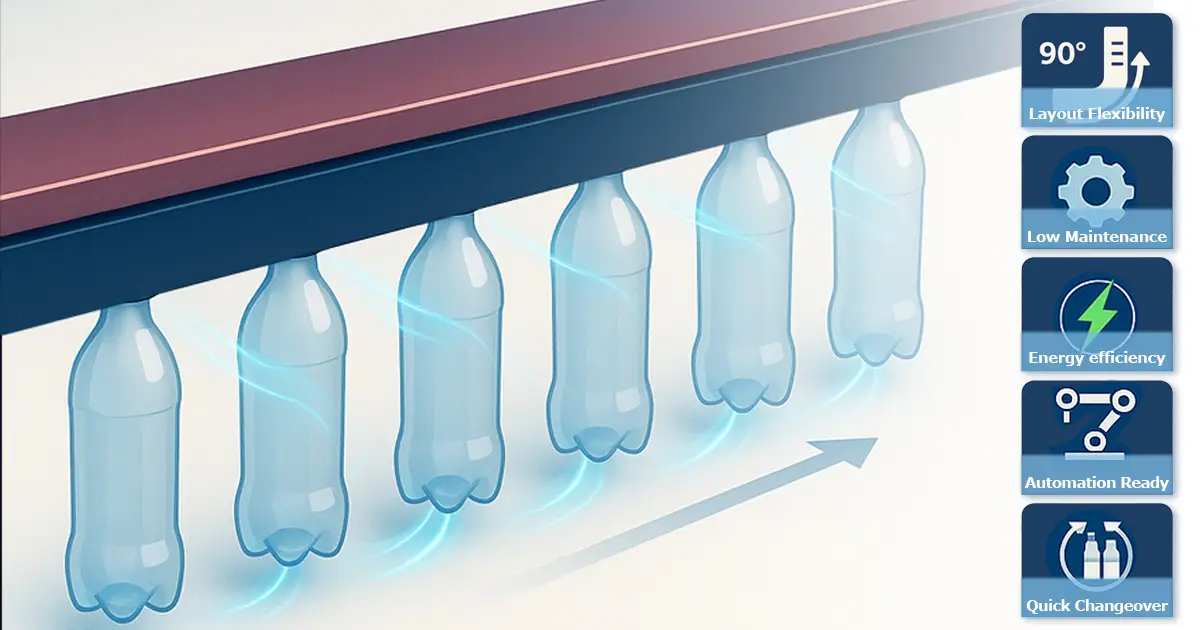- Details
- By Tony Gregory
In high-speed packaging environments, air conveyors systems are a common solution for transporting lightweight plastic bottles—especially those made from PET or HDPE. These systems use pressurized air and guiding mechanisms to move bottles efficiently from one process stage to another. Selecting the right system involves evaluating several technical and operational factors that can impact performance, maintenance, and long-term flexibility.
1. Bottle Format Compatibility
Air conveyors must support a wide range of bottle formats, including short-neck or lightweight bottles commonly found in the pharmaceutical, cosmetic, and beverage sectors. Systems that use a double neck-guide—supporting the bottle from both above and below the collar—can offer better stability and reduce marking.
2. Airflow Control and Efficiency
Effective airflow management is essential. The system should direct air only where needed to maintain bottle position and avoid excessive turbulence, which can lead to jamming or wear. Efficient airflow also translates into lower energy consumption, reducing operational costs over time.
3. Layout Flexibility
Some air conveyors, such as the Vertijet, can be installed with inclines of up to 90°, which helps optimize plant layouts. This feature is particularly valuable where space is limited or where vertical transport between floors is required.
4. Ease of Maintenance and Operation
Low-friction components and robust design reduce the need for frequent maintenance. It's also important that the conveyor system allows for quick adjustments or changeovers between bottle formats without excessive downtime.
5. Automation Integration
For operations moving toward full packaging automation, the air conveyor should support integration with automated format changes, electronic speed control, and centralized monitoring systems. This ensures the conveyor remains efficient as production needs evolve.
Conclusion
Choosing the right air conveyor system depends on a clear understanding of bottle types, production speeds, facility layout, and long-term automation goals. Manufacturers like POSIMAT offer solutions such as the POSIJET/Vertijet, which are designed to meet these technical requirements with energy-efficient performance and format versatility.



